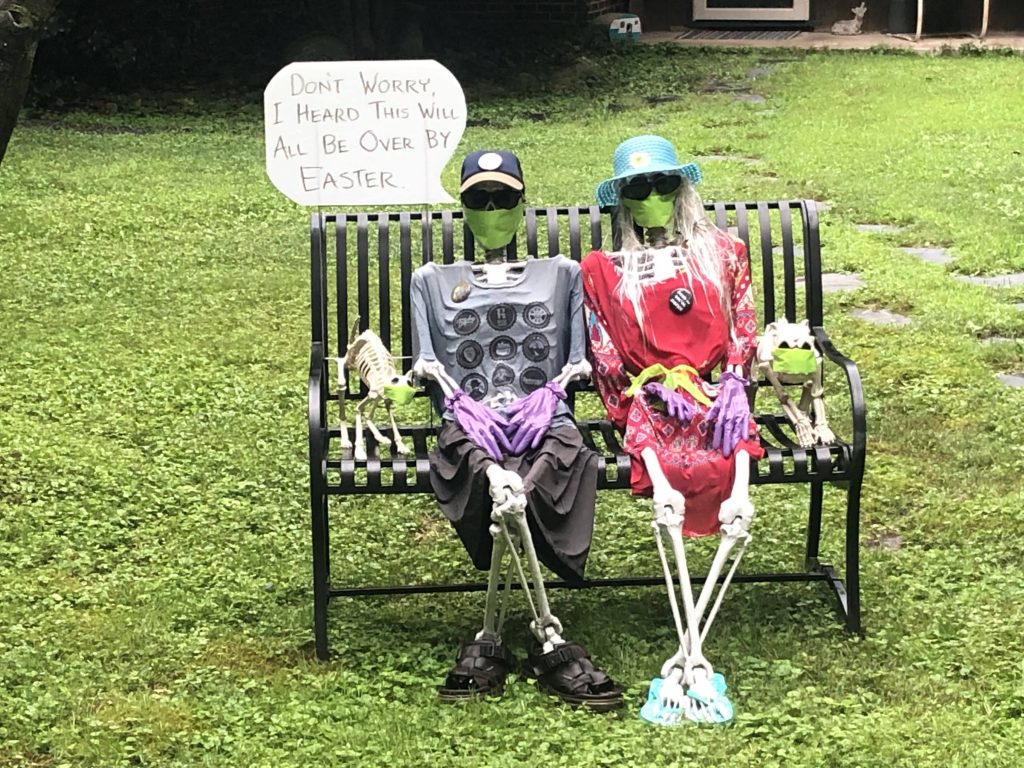
I’m an optimist. Always have been and probably always will be. But recently, I have been uncharacteristically pessimistic about one thing: this dang pandemic.
When it started for us here in the US, I was consulting with a running retailer and race management company. They had a late-May race that is a beloved community event and brings in a lot of revenue for them. I remember urging them to postpone or cancel, even though the shutdown was only supposed to be for a few weeks. After it was finally postponed, discussions turned to when it should be rescheduled. Everyone voted for August. Everyone but me: I voted to cancel the in-person race entirely. You can probably guess that it ended up being a virtual race only.
And that’s just one example.
I’ve surprised myself with my own pessimism, but here’s the thing: I continue to be right.
LinkedIn recently suggested an article to me about Admiral Jim Stockdale’s experience as a prisoner of war in Hanoi from 1965 to 1973. Stockdale shared that the POWs who didn’t survive were those who were blindly optimistic. “They insisted they’d be out by a certain date. But that date came and went, and then another, and then another.”
Sound familiar?
I felt validated in my newly-adopted pessimistic attitude.
But there’s more to it than that. A complete lack of optimism is bad, too; maybe worse. You still have to believe that you will eventually overcome the circumstances. It’s a kind of optimism that is grounded in reality. “You must never confuse faith that you will prevail in the end—which you can never afford to lose—with the discipline to confront the most brutal facts of your current reality, whatever they might be.” (That quote is from Jim Collins’ book Good to Great, where he called this truth the Stockdale Paradox.)
A few days later, I was listening to the podcast In the Bubble with Andy Slavitt. Andy was interviewing Ed Yong, Atlantic staff writer and Pulitzer Prize winner for Explanatory Reporting.
The episode is called How We Win the Battle with COVID. In it, Slavitt asks Yong, “[I]f you tell the public that this is going to be something that is going to be a new part of life, it is amazing how large parts of the population (in the US at least—I haven’t studied this in other places), really despise that idea. Is that going to change over time as people get accustomed to it?
And Yong’s response really struck me. He said,
“Regardless of how optimistic or pessimistic I feel about the possibility of that kind of change, I don’t think that any of us have the luxury of pessimism with it. Because I think that if we cannot enact that kind of cultural change, we’re screwed. I think we’re screwed with a pandemic. I think we’re screwed with climate change. I think we’re really in problems, if we can’t address these problems in a more collectivist, more community minded way. And I do think that that is, if not likely, then certainly possible.”
I had never thought of pessimism as a luxury, but I get it. Throwing up your hands and giving up because things are just too bad and fixing them is too much of a challenge is a bit of a luxury. And we can’t afford to do that.
Instead, we have to embrace grounded optimism and believe that we can get through this—even if it’s going to be a long, grueling journey.



